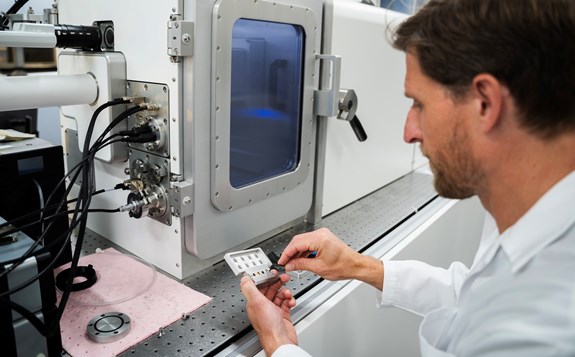We use cookies on this website. Cookies help us deliver the best experience on our website. Read about cookies.
-
- Education
- Education
- Programmes and courses
- Applications and admissions
- Tuition fees
- Scholarships
- Exchange studies at Malmö University
- Study Guidance
-
- After admission
- After admission
- Moving to Malmö
- Pre-orientation
- Arrival guide
-
- About studies at Malmö University
- About studies at Malmö University
- Why choose Malmö University
- Understanding university studies
- Connect with our students
On the page -
- Research
- Research
-
- Doctoral studies
- Doctoral studies
- Doctoral courses
-
- Doctoral schools
- Doctoral schools
- Doctoral school: Education, Learning and Globalisation
- Doctoral school: The National Research School for Professionals in Social Services
- Doctoral school: Learning in Multicultural Societal Contexts
- Doctoral school: ComBine
- Doctoral school: Swedish National Graduate School in Science and Technology Education Research
- Doctoral school: Relevancing Mathematics and Science Education (RelMaS)
- Doctoral school: Sustainable Movement Education
- Doctoral school: Finding ways in a time of great future challenges (FinnFram)
- Doctoral school: Pedagogy and Vocational Skills
- Doctoral school: Culturally Empowering Education through Language and Literature
- Research subjects
-
- Research centres
- Research centres
- Biofilms Research Centre for Biointerfaces
- Citizen Health
- Imagining and Co-Creating Futures
- Institute for Urban Research
- Malmö Institute for Migration Studies
- Literacy and Inclusive Teaching
- Centre for Work Life Studies
- Sustainable Digitalisation Research Centre
- Centre for Sexology and Sexuality Studies
-
- Research publications
- Research publications
- Search publications
- Malmö University Press
- Research events
- Participate in a research study
- Coffee Break Quiz
On the page -
- Collaboration and Innovation
- Collaboration and Innovation
- Innovation
- Collaboration with students
-
- Collaborate with researchers
- Collaborate with researchers
- Labs and facilities
- Culture collaboration
- Support Malmö University
- Alumni & Friends
On the page -
- About us
- About us
-
- Faculties and departments
- Faculties and departments
-
- Faculty of Culture and Society
- Faculty of Culture and Society
- Department of Urban Studies
- Department of Global Political Studies
- School of Arts and Communication
-
- Faculty of Education and Society
- Faculty of Education and Society
- Department of Childhood, Education and Society
- Department of Sports Sciences
- Department of Natural Science, Mathematics and Society
- Department of School Development and Leadership
- Department of Culture, Languages and Media
- Department of Society, Culture and Identity
-
- Faculty of Technology and Society
- Faculty of Technology and Society
- Department of Computer Science and Media Technology
- Department of Materials Science and Applied Mathematics
-
- Faculty of Odontology
- Faculty of Odontology
- Master's programmes in Dental Science
- University Dental Clinic
- Management and decision-making paths
-
- Vision, objectives and strategy 2025
- Vision, objectives and strategy 2025
- Global engagement
- Sustainability
- Widened recruitment and participation
- Quality assurance work at the University
-
- Malmö Academic Choir and Orchestra
- Malmö Academic Choir and Orchestra
- Student work – video pieces
-
- Annual Academic Celebration
- Annual Academic Celebration
- Academic traditions
- Meet our new professors
- The University in a troubled world
On the page
Anette
Gjörloff Wingren
Professor emeritus
anette.gjorloff-wingren@mau.se
+46 70 601 18 57
orcid.org/0000-0002-2993-0354
Presentation
Ph.D. in tumor immunology at Lund University 1995. Associate professor in immunology 2002. Professor in Biomedical laboratory science in 2016. Teaching at Malmö University in immunology, cell biology, supervision and and examination of thesis work at basic and advanced level.
Publications
-
2025 | Article in journal
Antigenic peptide delivery to antigen-presenting cells using a CD40-coiled coil affinity-based platform
Barnabas Nyesiga, Karin Hägerbrand, Laura Varas, Anette Gjörloff Wingren, Mats Ohlin, Peter Ellmark, Laura von Schantz
-
2024 | Article in journal
Investigation of tryptophan to kynurenine degradation in response to interferon-γ in melanoma cell lines
Helena Tassidis, Skaidre Jankovskaja, Kassem Awad, Lars Ohlsson, Anette Gjörloff Wingren, Anna Gustafsson
-
2023 | Article, review/survey
Recent Advances in Molecularly Imprinted Polymers and Their Disease-Related Applications
Celia Cabaleiro-Lago, Sylwia Hasterok, Anette Gjörloff Wingren, Helena Tassidis
-
2023 | Article, review/survey
Applications of Tumor Cells in an In Vitro 3D Environment
Sylwia Hasterok, Anna Gustafsson, Anette Gjörloff Wingren
-
2023 | Article in journal
In vitro effects of undifferentiated callus extracts from Plantago major L, Rhodiola rosea L and Silybum marianum L in normal and malignant human skin cells cells
Anette Gjörloff Wingren, Riyam Ziyad Faik, Anna Holefors, Edina Filecovic, Anna Gustafsson
Research Projects
You can find previous research projects in the Diva database.
